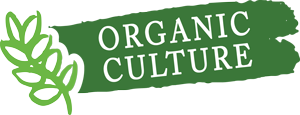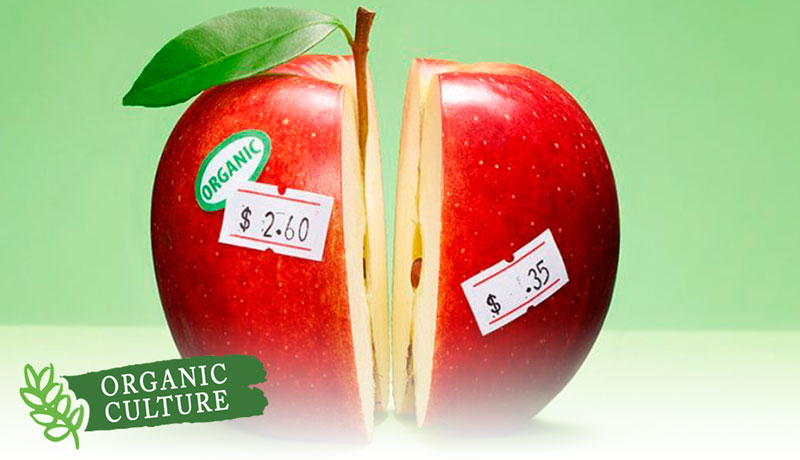The main difference between organic vs. non-organic foods is the way they are grown and handled.
Organic farming is an alternative to conventional methods. It is based on the principle that certain practices, such as the use of synthetic fertilizers, pesticides and herbicides are not sustainable and do not provide positive results for the environment. Organic farmers rely on natural processes to maintain soil fertility and crop health, avoid pollution of water supplies and ensure healthy food production.
Organic farmers produce crops without synthetic pesticides, herbicides or fertilizers. They also refrain from using genetically modified organisms (GMOs), sewage sludge and irradiation. Organic animal products come from animals raised without hormones or antibiotics, fed organic feed and allowed access to pasture as well as other benefits such as open barns or lofts for chickens and access to fresh air for cattle during grazing season.
Canada Organic Associations is an organization that promotes Canadian organic products in order to improve lives through healthful food choices for all Canadians by providing information about local organic producers nationwide; encouraging Canadians to eat more locally produced foods; supporting local farmers through promotional events; increasing awareness about local food systems; advocating for fair trade policies; promoting better understanding between consumers and producers; creating opportunities for learning about agriculture through educational programs; promoting volunteerism.
Organic food is a type of food that is produced using only methods that do not involve modern synthetic inputs such as pesticides and genetic engineering. Organic food is often produced in a way that uses techniques involving animal labor, composting, crop rotation, and other environmentally friendly farming practices.
In Canada, there are several provinces and territories with organic certification programs for growers, processors and retailers. Ontario has its own organic association which certifies producers who meet the standards set by the Canadian Food Inspection Agency (CFIA).
Canadian Food Inspection Agency (CFIA)
The Canadian Food Inspection Agency (CFIA) is an organization within the Canadian Government that oversees food safety and labeling standards in Canada, including organic products. They are responsible for enforcing federal laws governing organic food labeling and certification in Canada.
Canadian Organic Standards Council (COSCO)
The Canadian Organic Standards Council (COSCO) is an independent agency responsible for establishing and maintaining organic certification standards in Canada. The COSCO also maintains a list of accredited certifying bodies that can issue organic certificates to producers who meet the requirements of their organic standard.
Organic Produce Production Requirements
Organic produce must be grown without synthetic pesticides, bioengineered genes (GMOs), petroleum-based fertilizers, and sewage sludge-based fertilizers.
Organic livestock raised for meat, eggs, and dairy products must have access to the outdoors and be given organic feed. They may not be given antibiotics, growth hormones, or any animal by-products.
Organic produce must be grown without synthetic pesticides, bioengineered genes (GMOs), petroleum-based fertilizers, and sewage sludge-based fertilizers. Organic livestock raised for meat, eggs, and dairy products must have access to the outdoors and be given organic feed. They may not be given antibiotics, growth hormones, or any animal by-products.
Organic foods are grown without the use of pesticides, synthetic fertilizers or genetic engineering. Farmers who grow organic crops cannot use most conventional pesticides on their fields, so they use other methods to control pests like weeds and insects.
Organic livestock cannot be given hormones or antibiotics to make them grow faster or to treat disease. They should also have access to outdoor space.
Both organic and non-organic farming methods use pesticides. However, the main difference between organic vs. non-organic foods is the way they are grown and handled.
Both organic and non-organic foods may be sprayed with pesticides before being sold in the grocery store. Both types of pesticides are approved by the Environmental Protection Agency (EPA). Some people prefer organic food because they want to avoid eating any chemicals, but it’s important to know that both types of foods are safe if used properly. For example, if you wash your fruits and vegetables thoroughly before eating them, you can greatly reduce your exposure to pesticides.
Organic produce must be grown without synthetic pesticides, bioengineered genes (GMOs), petroleum-based fertilizers, and sewage sludge-based fertilizers.
In general, organic food is grown without synthetic pesticides and bioengineered genes (GMOs), petroleum-based fertilizers, or sewage sludge-based fertilizers. It’s not just the fact that these products don’t exist in the soil where organic food grows that makes it better for you: The way these products are used also affects your health.
The issue with synthetic pesticides is that they can be harmful if consumed directly through your diet or indirectly by being absorbed into your body through groundwater supplies—which will happen when pesticides find their way there during rainstorms or irrigation systems used in non-organic farming practices.
Bioengineered organisms are created by humans using technology such as gene splicing to make them resistant to pests while still providing good yields in crops like corn and soybeans; those crops can then become ingredients in other foods like mayonnaise or salad dressing. Studies have shown links between GMOs and digestive disorders, along with lower immunity levels among children living near GMO farms compared to those who lived farther away from them.
Non-organic ingredients may contain chemicals such as cosmetics ingredients like lead or shampoo ingredients commonly found in household products that are harmful if swallowed such as aluminum or mercury.
Non-organic food may contain chemicals such as cosmetics ingredients like lead or shampoo ingredients commonly found in household products that are harmful if swallowed such as aluminum or mercury. Organic food does not contain these chemicals. Instead, organic farmers tend to use natural pesticides and fertilizers that are safer for the environment.
You should use organic food if you can afford it!
If you can afford organic food, it’s always best to buy it. It’s better for you, the environment and everything else! Organic farmers are more likely to use practices that benefit the soil and air quality. On an individual level, eating organic foods has been associated with reduced toxin exposure (especially from pesticides) and some health benefits like lower rates of cancer and heart disease. Eating organic foods also helps keep toxic chemicals off of your plate!
The main difference between organic vs. non-organic foods is the way they are grown and handled. Organic produce must be grown without synthetic pesticides, bioengineered genes (GMOs), petroleum-based fertilizers, and sewage sludge-based fertilizers. Organic livestock raised for meat, eggs, and dairy products must have access to the outdoors and be given organic feed. They may not be given antibiotics, growth hormones, or any animal by-products. Both organic and non-organic farming methods use pesticides. However, the main difference between organic vs. non-organic foods is the way they are grown and handled

